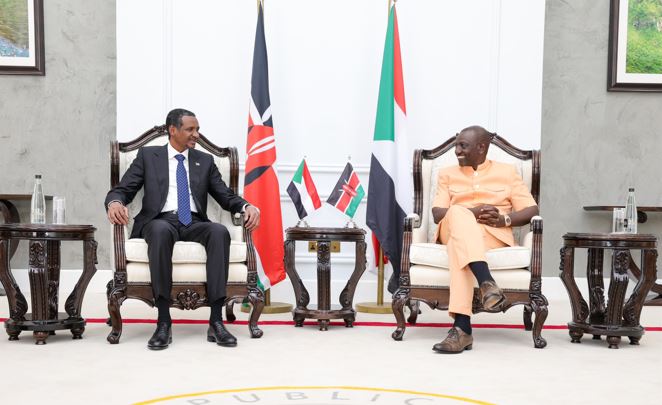Sudan bans imports from Kenya in retaliation for Nairobi's support of RSF

"The import of all products coming from Kenya through all ports, crossings, airports, and ports will be suspended as of this day until further notice," the directive said.
Sudan's military leadership has imposed an immediate ban on all imports from Kenya, including tea, in response to Nairobi's backing of the sanctioned Rapid Support Forces (RSF) and its attempt to establish a parallel government.
A circular issued on Thursday by Sudan's Ministry of Trade, and seen by The Eastleigh Voice, ordered an immediate halt to imports from Kenya.
More To Read
- Amnesty International urges RSF to end El Fasher siege, warns of imminent civilian catastrophe
- Tawila overwhelmed as El Fasher exodus deepens Darfur crisis
- Sudan expels two senior World Food Programme officials amid escalating tensions
- Sudan army withdraws from El Fasher as RSF seizes control
- Risk of large-scale atrocities in Sudan’s El Fasher grows ‘by the day’
- Sudan war: Three children dying every day as hunger and diseases devastate besieged El Fasher
"The import of all products coming from Kenya through all ports, crossings, airports, and ports will be suspended as of this day until further notice," the directive, written in Arabic, stated. It was signed by acting Trade Minister Omar Ahmed Mohamed.
Retaliatory move
The decision marks a sharp escalation in diplomatic tensions, as Sudan's junta, based in Port Sudan, pushes back against Kenya's warming ties with Mohamed Hamdan Dagalo ("Hemedti") and the RSF.
 President William Ruto (right) when he held talks with the leader of Rapid Support Forces Gen Mohamed Hamdan Dagalo at State House, Nairobi on January 3, 2023. (Photo: PCS)
President William Ruto (right) when he held talks with the leader of Rapid Support Forces Gen Mohamed Hamdan Dagalo at State House, Nairobi on January 3, 2023. (Photo: PCS)
The military leadership argues the ban is a way to protect Sudan's sovereignty and national interests amid growing unease over Nairobi's stance.
Kenya's hosting of RSF leader Dagalo has not gone down well with Sudan's army chief, Abdel Fattah al-Burhan, who has repeatedly accused Nairobi of taking sides in the ongoing conflict.
With tensions rising between the two nations, this trade ban could further strain relations and have economic consequences, particularly for Kenya's lucrative tea exports to Sudan—one of its key markets in North Africa.
Top Stories Today










































